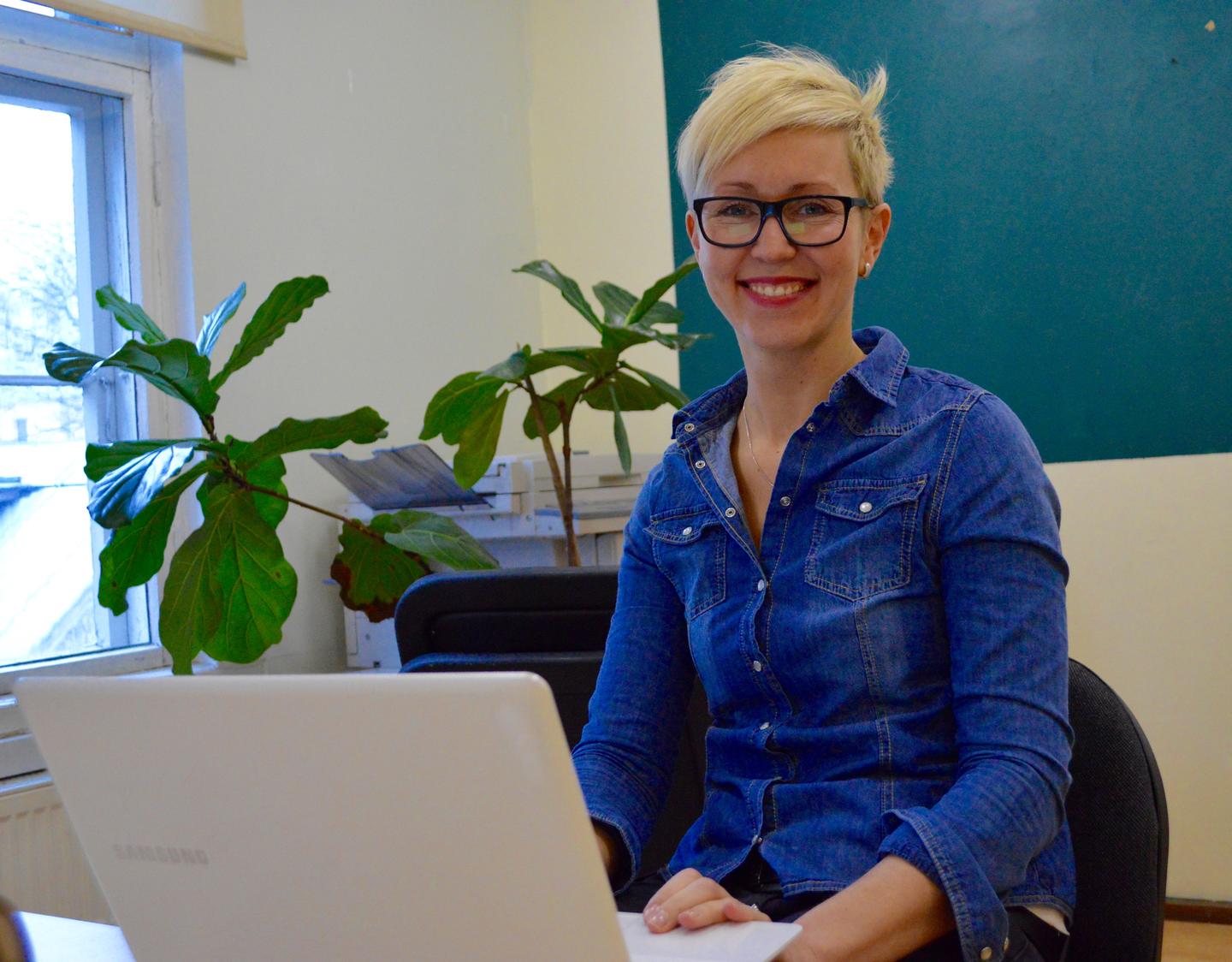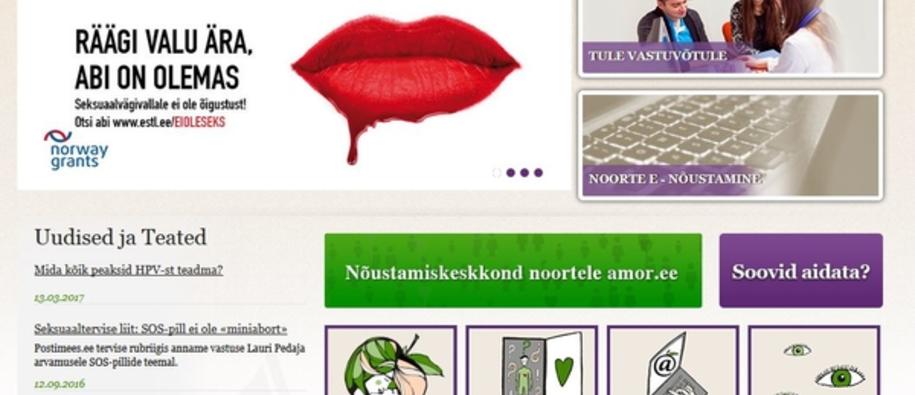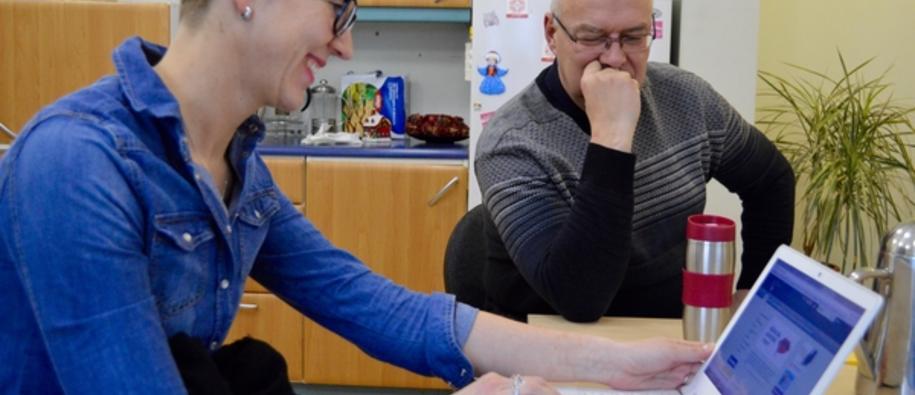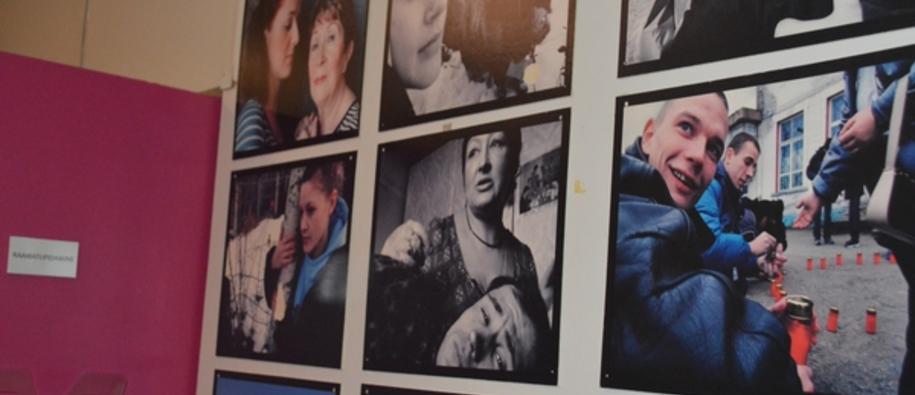In an old wooden house in the middle of Tallinn, you find Estonia’s best known sexual counselling clinic, run by the foundation Eesti Seksuaaltervise Liit. With financial support from the Norway Grants, the clinic's website has been given a makeover.
“Approximately 50 youths visit us on a weekly basis; however, our main goal is to assist people through our web services. Every month there are around 25 000 unique online users, searching for information about sex and asking questions,” says project manager Marko Nummert.
Sex, love and depression
“I had unprotected sex - should I get tested? How do I know if I am pregnant? What are the symptoms of HIV? The most typical questions are about sex, relationships and depression. Lately there have also been questions concerning sexual abuse and domestic violence,” says Kerli Hannus, counsellor and project coordinator.
During the past five years Kerli has gained much experience in how to reply to different questions from various age groups. She taps quickly at the keyboard - two new questions have popped up in her mailbox the past hour.
“We provide thorough answers; if I do not have the right competence, I forward the questions to our therapists, midwives, doctors, or psychologists - depending on the subject,” says Kerli.
Boys and girls
The web-service was recently reorganized, with a stronger focus on preventing sexual transmitted diseases (STDs) and teenage pregnancies. In a new modern database users are now able to find pre-set answers to common questions.
“If there is specific information they can’t find, a specialist replies with a personal and customized answer. In general, boys age 13/14 have questions regarding their genitals, while the girls are more concerned about emotions and menstruation,” says Kerli.
The web-counselling project is part of a programme to improve public health and reduce health inequalities in Estonia.
Highest HIV-rate in the EU
While STD-diseases in Estonia are decreasing among youths, Estonia is one of the countries in Europe with the highest HIV rate: more than 9000 people out of 1.2 million inhabitants are HIV-positive.
“Five years ago STD-diseases were increasing dramatically in Estonia, so we are happy to see a decrease. However, there were 229 new HIV-positive in 2016, and 270 in 2015, and it’s increasing among heterosexuals in their 30s,” says Marko.
Kerli’s impression is that youths are more aware and worried about sexual diseases than adults.
“Some are worried that they have a STD despite not having had sex. Recently, people have started sending me pictures of their genitals to be diagnosed, however, we always encourage them to seek a doctor,” says Kerli.
She often receive messages of concerns that are outside her field of competence.
“Sometimes we are contacted by people who threaten to commit suicide. In such cases the psychologist always invites them to come to counselling. Last week a grandma contacted me because she suspected that her grandchildren were sexually abused by their stepfather. We had to act and handed the concern over to the police,” says Kerli.
"Regarded as taboo"
As the leading organisation on sexual health in Estonia the center is also responsible for sexual health education in schools.
“We have given 120 lectures about sexual health, in Tallinn. The biggest challenge is to reach out to the Russian-speaking population of Estonia (33 percent). It´s harder to get access to their schools as many represent strong orthodox traditions where the theme sexuality is regarded as a taboo,” says Marko.
“It’s easier to ask intimate questions through a web portal than in person, - it’s free, private, and anonymous. There has also been a development in trust; in the beginning people always wrote anonymously, now more are signing with their full name,” says Kerli.
Interested in Estonia? Here are more stories:
How do you prevent crime among young Estonians? Read the full story here.



